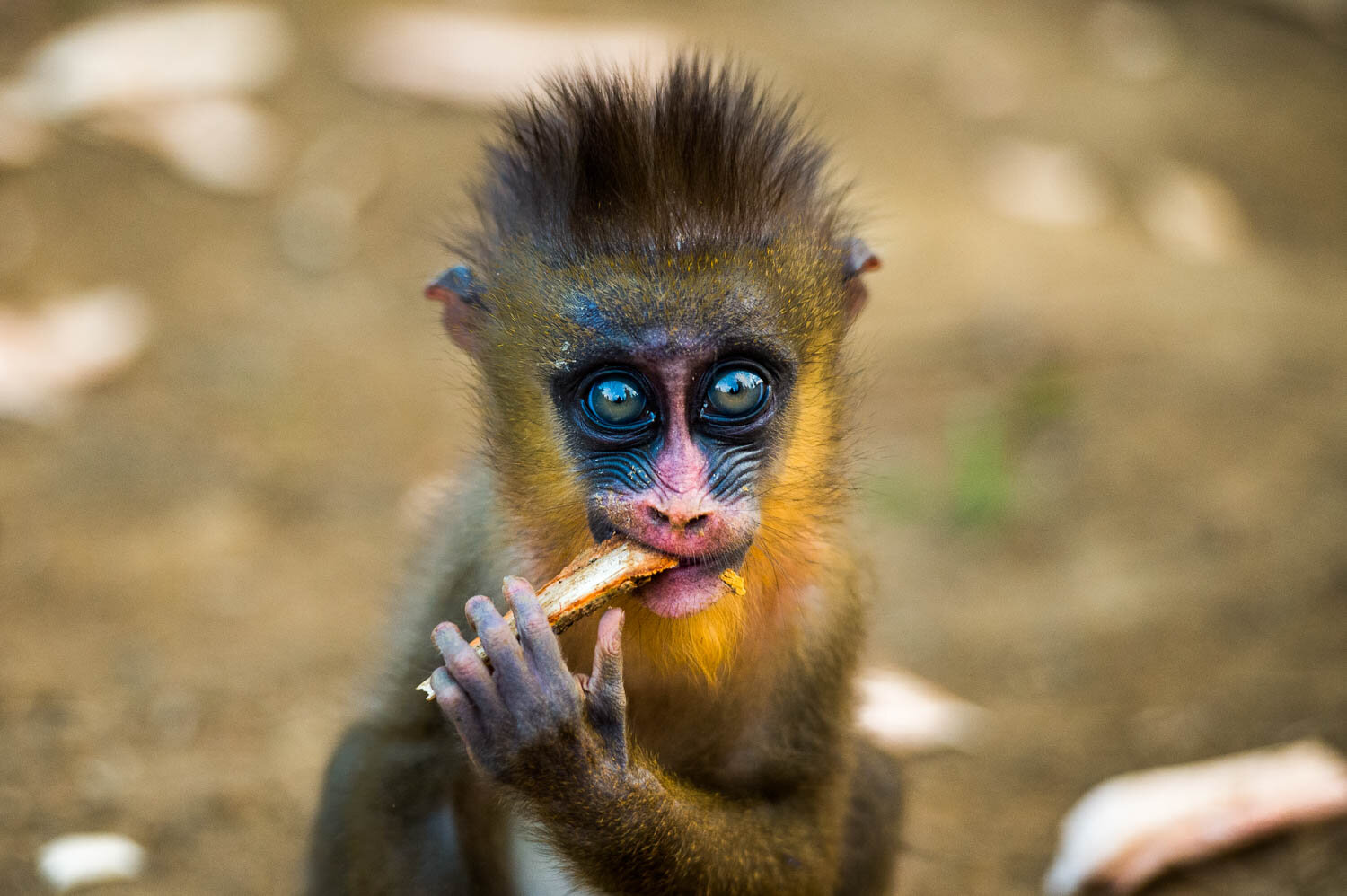
GABON
A young Gabonese boy who was selling bush meat.
In Gabon, eco guard Soho Jocelyn prepares to leave his family and go on patrol in Menkebe national park. Being a ranger in Central Africa has become increasingly dangerous in recent years as poachers now frequently use automatic weapons, often killin
Soho Jocelyn, an eco guard from Makokou, Gabon, prepares to go on patrol in Menkebe national park. He will be on patrol for two weeks.
Soho Jocelyn, an eco guard from Makokou, Gabon, says goodbye to his wife before going on patrol in Menkebe national park. He will be on patrol for two weeks.
Eco guards patrol the Oua river in North West Gabon. Rivers are often used as quick ways to export poached Ivory and other bush meat out of the jungle.
Eco guards check a dug out canoe on the Oua river. Rivers are often used as quick ways to export poached Ivory and other bush meat out of the jungle.
Eco guards patrol the Oua river in North West Gabon. Rivers are often used as quick ways to export poached Ivory and other bush meat out of the jungle.
In Mekobe village a man rolls the skin of a water cobra. The meat of the snake will be eaten and the skin preserved to hang on his wall. For generations rural Gabonese communities have survived sustainably from bushmeat. But poaching for commercial r
Despite being one of Africa's most resource rich countries, poverty is widespread in Gabon and a big contributor to poaching. This lady is from a Baka pygmy village near Menkebe. The Baka have been targeted by crime syndicates and recruited as poache
A juvenile mandril monkey, it's mother was killed by poachers and it now lives in Minkebe village.
Eco guards inspect some suspect tyre marks in a logging concession near Minkebe national park.
Eco guards on patrol at night in a logging concession outside Minkebe national park. As longing concessions cut deeper into the forest they open the way both for illegal logging and poaching.
Eco guards cook dinner on patrol in a logging concession outside Minkebe national park.
A night hunter in a logging concession outside Menkebe national park. Night hunting is illegal in Gabon but it is still a common practice in rural areas.
Central Africa is in the midst of an elephant poaching crisis. In order to combat the problem, the president of Gabon has recruited a whole new section of the army devoted to fighting back against wildlife crime. Here, Mba Ndong Marius holds seized I
Two convicted poachers are handcuffed after interrogation at the jail in Oyem, Gabon. Elephant poaching brings much needed income that, for some, outweighs the risk of a three year jail sentence. Oyem, Gabon.
Seized weapons used by poachers are audited at the justice tribunal in Oyem before being transported to Libreville to be burnt along with the confiscated ivory as part of Gabon's ceremonious Ivory burn.
A large haul of bush meat laid out next to a police post outside Oyem. For generations rural Gabonese communities have survived sustainably from bushmeat. But poaching for commercial resale has created an unsustainable demand on large numbers of spec
On 27th July, Gabon's president, Ali Bongo Ondimba, ordered the country's entire stockpile of Ivory, about 10 million dollars worth to be burnt, symbolising Gabon's antipoaching stance and determination to combat the illegal trade.
The president's security keep watch as Gabon burns Ivory stockpile.
Gabon's stockpile of confiscated ivory goes up in smoke.
A heard of buffalo in Wanga Wangue presidential reserve, Gabon.
Norbert Pradal, the conservateur of Wanga Wangue presidential reserve stands two elephant tusks in front of the a patrol helicopter.
Aurelie Kumbe and Tuburse Mouyamba take me to see an elephant carcass they found outside their village in the Gamba district of Gabon. The tusks are long gone, but bones as large as these are not easily buried. Gamba, Gabon.























